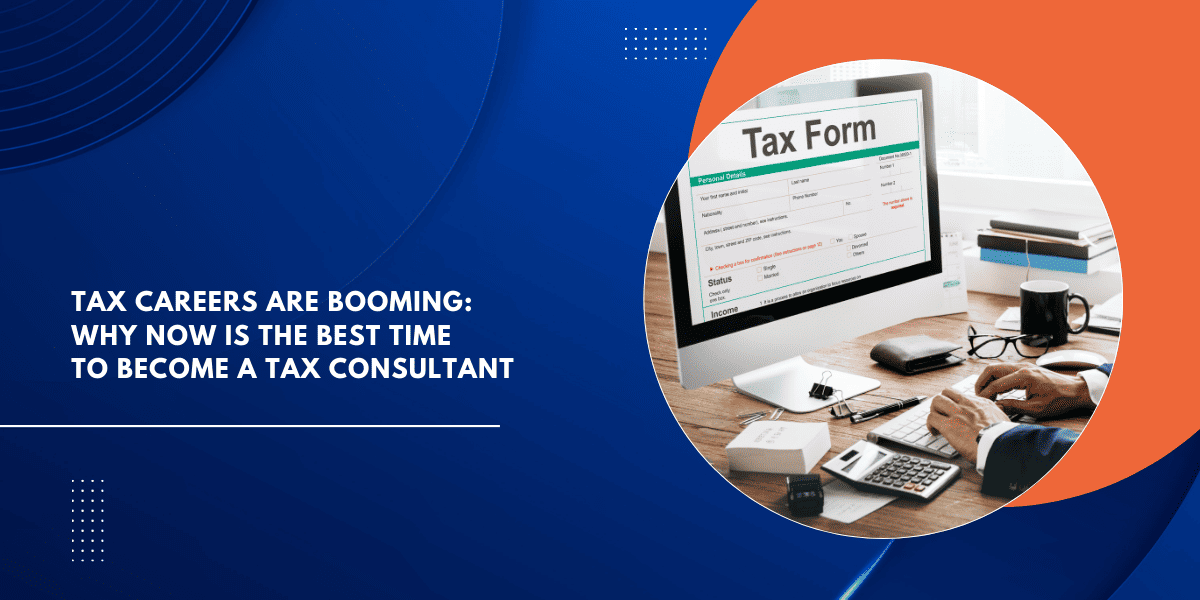“Blog written by Indu R Eswarappa, Career Coach & Education Change-Maker”
Hey everyone!
Are you looking for a career that is well-paid, rewarding, and recession proof? What if I told you that you can make an excellent career choice with Data Analytics after completing your graduation. Exploring career paths for data analyst might just be the perfect choice for you! It’s rewarding, challenging, and comes with lots of perks including a great work life balance. And the good news is you need not be an expert in mathematics or statistics for it though you should have interest in numbers and unearthing data from a pile of raw information. Let’s try to understand it better.
Introduction to the Career
In my opinion, if there’s one career that has truly exploded in India over the last decade, it’s Data Analytics. Every industry—whether it’s finance, healthcare, e-commerce, or even sports—depends on data-driven decisions. So, the career paths for data analysts are quick and rewarding.
Companies in India are looking for skilled data analysts who can interpret large sets of data and extract meaningful insights. Unfortunately, these companies are not getting good candidates to hire them. So, as a data analyst you can expect a lot of good job opportunities as soon as you complete a course in it.
Going by the current trends, a report says India has the highest demand for data analytics skills globally. The country accounts for 17.4% of job openings for the profile, according to the Global State of the Skills Economy Report from SkyHive by Cornerstone.
If you’re a student or a parent considering career options, let me tell you—data analytics is an excellent choice.

What Is the Future of Data Analytics?
India’s data analytics industry has experienced rapid growth over the past decade, driven by the country’s expanding internet user base. By 2025, the number of internet users is expected to surpass 900 million, more than doubling since 2015.
This surge in online activity has led to a substantial increase in data collection, enabling businesses to explore new market opportunities and fueling the expansion of the data analytics sector. Thus, the data analyst career progression will remain rosy and rewarding in the near future, too.
Key Responsibilities
Professionals working as Data Analysts are responsible for collecting, analyzing, and interpreting data to help organizations make data-driven decisions. Today, data analysts wear many hats, ranging from data analyst to chief data analyst and even CEO of an organization.
With the right guidance and experience, you can climb to the top of the corporate ladder in this field.
Here are the key roles and responsibilities:
Data Analyst
Collects and cleans raw data from multiple sources, ensuring accuracy and completeness.
Uses statistical tools and data visualization techniques to identify trends and insights.
Prepares reports and dashboards to support business decisions.
Works closely with stakeholders to understand data needs and optimize data-driven strategies.
Business Intelligence Analyst
Develops and maintains business intelligence solutions, including dashboards and reporting systems.
Analyzes market trends, financial data, and operational performance to provide actionable insights.
Collaborates with different departments to improve data utilization and decision-making processes.
Ensures data integrity and compliance with industry standards.
Data Scientist
Builds predictive models and machine learning algorithms to extract insights from large datasets.
Conducts statistical analysis and hypothesis testing to support business strategies.
Works on big data processing and analytics frameworks like Hadoop and Spark.
Communicates findings through data storytelling and visualization tools.
Financial Data Analyst
Analyzes financial statements, market trends, and investment opportunities.
Builds financial models to assess risks, profitability, and performance metrics.
Works with financial teams to enhance forecasting and budgeting processes.
Ensures compliance with financial regulations and reporting standards.
Work Environment
From my experience, I’ve seen that data analysts enjoy a highly rewarding career with a good work-life balance. Moreover, the work environment in data analytics is fast-paced, data-driven, and intellectually stimulating. However, while meeting tight deadlines and solving complex data problems can sometimes be challenging, the career paths for data analyst generally offer flexibility, continuous learning, and diverse career opportunities across industries.
- Data Analysts typically work in corporate offices, financial institutions, healthcare firms, technology companies, government agencies, or research institutions.
- Collaboration with teams such as finance, IT, marketing, and operations.
- Data-driven decision-making process with a focus on insights and trends.
- Use of various analytical tools like SQL, Python, Excel, and business intelligence platforms.
Educational Pathways & Required Qualifications
Let’s discuss the education needed to become a data analyst in India and the career paths for data analysts.
Ideally, a background in Mathematics, Statistics, Computer Science, or Engineering helps, but even if you’re from a non-tech field, you can still enter data analytics through certifications and boot camps.
Entrance Exams to Get into UG/PG Course in Data Analytics Courses
Here’s a detailed overview of PG/ Master’s programs in data analytics and related fields in India, including entrance examinations, conducting bodies, exam formats, subjects, durations, total questions, and modes:
Necessary Soft Skills & Technical Abilities
If you want to succeed as a Data Analyst, you need a strong mix of technical abilities and soft skills, along with the right education and certifications. I’ve seen many candidates struggle to land their dream jobs, not because they lack technical knowledge, but because they aren’t confident in presenting their ideas or communicating insights effectively.
Overall, the career paths for data analysts look quite promising, but with the right skills and knowledge, the sky’s the limit for candidates who want to excel in this field.
Soft skills are just as important as technical skills in this field. You need to be able to break down complex data into simple, actionable insights that teams can understand and act on. The data analyst career progression is quick and rewarding. With a few years of experience, you can be a top data analyst.
If you’re looking to build a career in data analytics, here’s what you should focus on:
Soft Skills:
- Problem-Solving Mindset: Ability to analyze data and extract meaningful insights.
- Critical Thinking: Looking beyond the numbers to understand patterns and trends.
- Communication Skills: Presenting complex data in a way that’s easy to understand for non-technical stakeholders.
- Attention to Detail: Ensuring data accuracy and spotting errors before they become issues.
Technical Skills
Data Analytics is a highly technical field where you’ll spend most of your time analyzing data, writing queries, and creating visualizations to extract meaningful insights.Most data analytics jobs today require proficiency in at least one programming language, along with expertise in data visualization, statistical analysis, and database management. Career paths for data analysts are diverse, offering flexibility and competitive salary packages.
Some technical skills I recommend learning before applying for the job of a data analyst are:
Data Visualization (Tableau, Power BI, Google Data Studio)
Programming Languages (Python, R, SQL)
Statistical Analysis & Data Modeling (Regression, Hypothesis Testing, Predictive Analytics)
Database Management (SQL, NoSQL, PostgreSQL, MongoDB)
Excel & Spreadsheets (Pivot Tables, VLOOKUP, Macros)
Big Data Technologies (Hadoop, Spark, AWS, Google BigQuery)
Machine Learning & AI (Bonus Skill) (Scikit-learn, TensorFlow, PyTorch)
Data Analyst Career Progression and Growth Opportunities
I have observed that Data Analytics offers tremendous career growth, from entry-level roles to leadership positions. As companies increasingly rely on data-driven decision-making, professionals with expertise in analytics, statistics, and business intelligence are in high demand.
Through my research, I have realized that the career paths for data analysts depend on continuous skill development, hands-on experience, and adaptability to evolving technologies. With the right mix of technical and soft skills, data analysts can transition into managerial and executive roles or specialize in areas like artificial intelligence and machine learning.

Career Levels in Data Analytics
From what I have seen, here’s how a career in data analytics typically progresses:
- Entry-Level: Data Analyst, Business Analyst, Reporting Analyst
- Mid-Level: Senior Data Analyst, Data Engineer, BI Analyst
- Senior-Level: Data Science Manager, Analytics Lead, Director of Data Analytics
- Specialized Roles: Machine Learning Engineer, AI Specialist, Data Architect
- Entrepreneurship & Consulting: Many experienced professionals start their own data analytics consultancy or freelance as data experts
Salary Expectations & ROI-ROT
Return on Investment (ROI):
A career as a Data Analyst is a strong investment due to high demand across industries. Here’s a breakdown:
Education Costs: A bachelor’s degree in data science or related fields costs ₹3-15 lakh, while a master’s degree can raise the total investment to ₹7-27 lakh, including certifications.
Salary & Earnings Potential: Investment is around ₹7-27 lakh, with returns of ₹15-40+ LPA in 3-10 years.
Return on Time (ROT):
- Education Duration: 3-4 years for a Bachelor’s degree, 1-2 years for a Master’s degree.
- Time to Break Even: 2-4 years based on average salary.
- Fast-Track Option: Short-term certifications (SQL, Python, Tableau) and hands-on projects can accelerate career growth.
Given the increasing reliance on data-driven decision-making in businesses, job security and the career paths for data analysts are exceptionally strong.
Future Prospects: The Next 20-30 Years
The future of data analytics is going to be a game-changer, and I’m honestly excited about where it’s headed! In the next 20–30 years, AI will handle complex data analysis, saving us time and effort, while real-time insights will help businesses make instant decisions. Quantum computing will take things to another level, making data processing faster than we ever imagined.
I see a bright future for the data analyst career path and salary across industries like healthcare, finance, cybersecurity, and climate science. Data is becoming the driving force behind business decisions, and companies are willing to pay top salaries for skilled analysts. With stricter data privacy laws and the rise of IoT and automation, the demand for data experts will only grow. If you love numbers and problem-solving, now is the perfect time to start your journey in data analytics!
Want to break into AI-driven data analytics? Let NextMovez guide you with expert career coaching to navigate this exciting field!
Final Thoughts
Thinking about a career as a Data Analyst? Trust me, it’s an exciting and rewarding path! The demand for data professionals is skyrocketing, and businesses are relying on data-driven insights more than ever. If you love problem-solving, numbers, and technology, this could be the perfect career for you.
So, what do you think? Ready to dive into the world of data analytics?
I hope this guide helps you in making the right career choice. Data analytics is a fantastic field with immense opportunities, and with the right skills, you can secure a high-paying job in just a few years. If you have any questions, drop them in the comments, and I’d be happy to guide you further!
Resources & References Used
- NASSCOM Report on Data Analytics Growth in India (2023)
- LinkedIn Jobs Data on Demand for Data Analysts (2024)
- Online Courses from Coursera, Udemy, and IIIT Bangalore






















